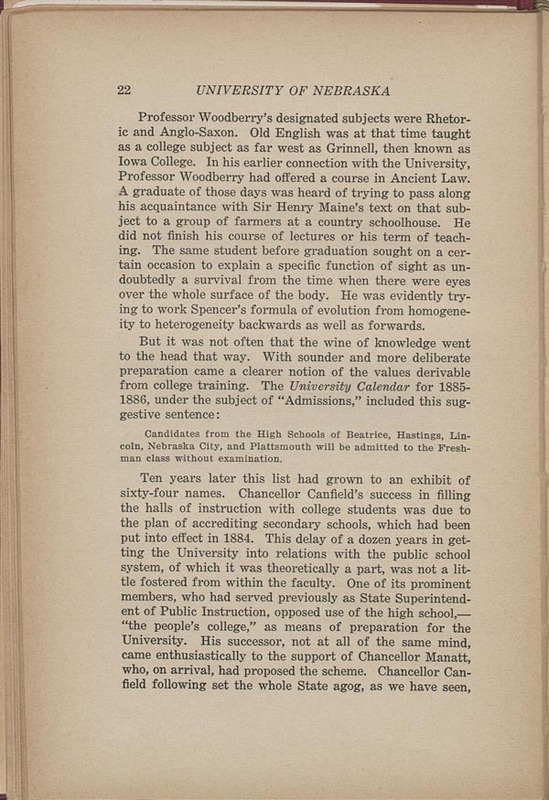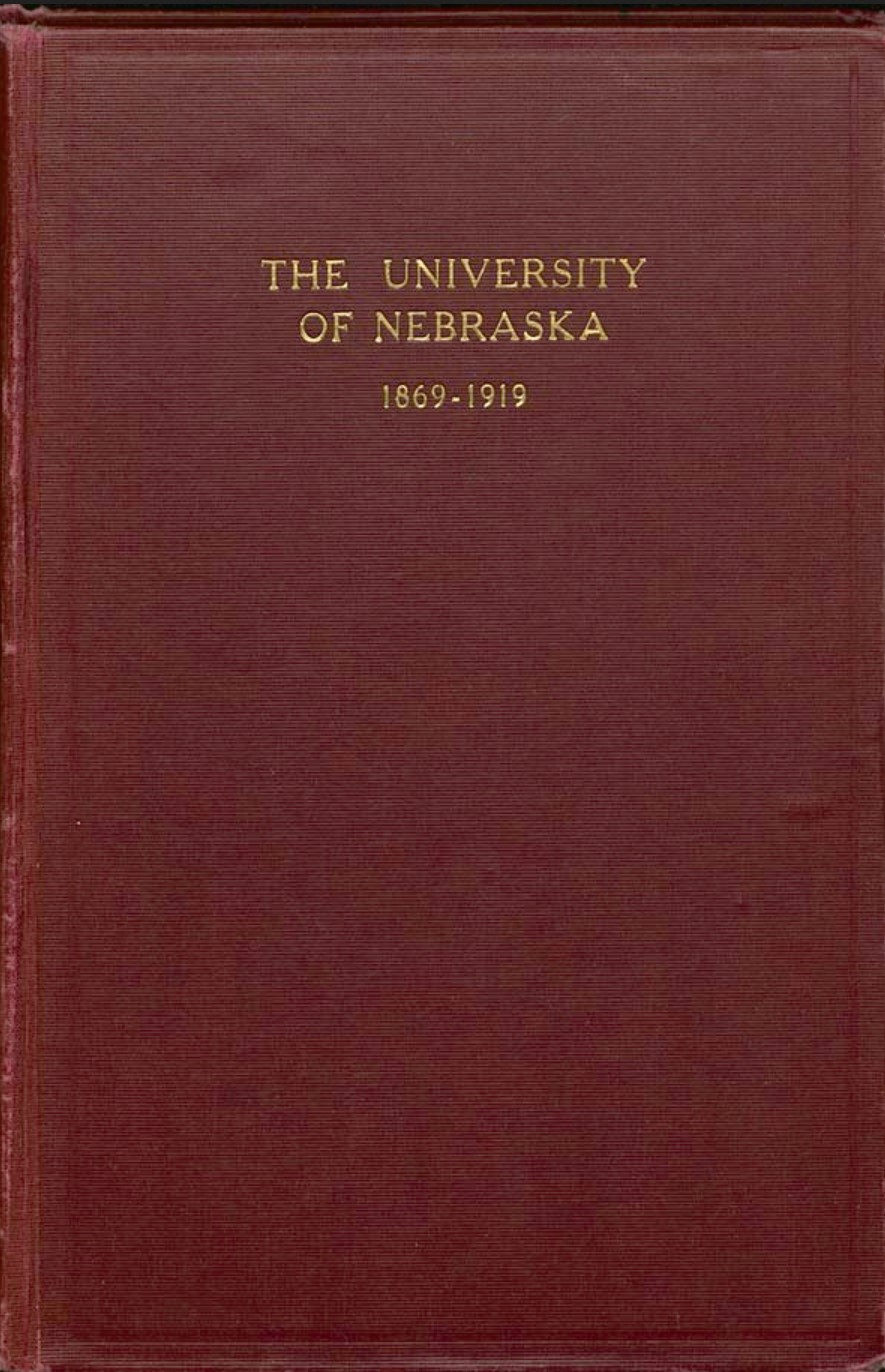026
Item
-
Title
-
026
-
Description
-
Semi-Centennial Anniversary Book: The University of Nebraska, 1869-1919
-
Transcription
-
Professor Woodberry's designated subjects were Rhetoric and Anglo-Saxon. Old English was at that time taught as a college subject as far west as Grinnell, then known as Iowa College. In his earlier connection with the University, Professor Woodberry had offered a course in Ancient Law. A graduate of those days was heard of trying to pass along his acquaintance with Sir Henry Maine's text on that subject to a group of farmers at a country schoolhouse. He did not finish his course of lectures or his term of teaching. The same student before graduation sought on a certain occasion to explain a specific function of sight as undoubtedly a survival from the time when there were eyes over the whole surface of the body. He was evidently trying to work Spencer's formula of evolution from homogeneity to heterogeneity backwards as well as forwards. But it was not often that the wine of knowledge went to the head that way. With sounder and more deliberate preparation came a clearer notion of the values derivable from college training. The University Calendar for 1885-1886, under the subject of "Admissions," included this suggestive sentence: Candidates from the High Schools of Beatrice, Hastings, Lincoln, Nebraska City, and Plattsmouth will be admitted to the Freshman class without examination. Ten years later this list had grown to an exhibit of sixty-four names. Chancellor Canfield's success in filling the halls of instruction with college students was due to the plan of accrediting secondary schools, which had been put into effect in 1884. This delay of a dozen years in getting the University into relations with the public school system, of which it was theoretically a part, was not a little fostered from within the faculty. One of its prominent members, who had served previously as State Superintendent of Public Instruction, opposed use of the high school,—"the people's college," as means of preparation for the University. His successor, not at all of the same mind, came enthusiastically to the support of Chancellor Manatt, who, on arrival, had proposed the scheme. Chancellor Canfield following set the whole State agog, as we have seen,
-
Rights
-
To inquire about usage, please contact Archives & Special Collections, University of Nebraska-Lincoln Libraries. These images are for educational use only. Not all images are available for publication.



